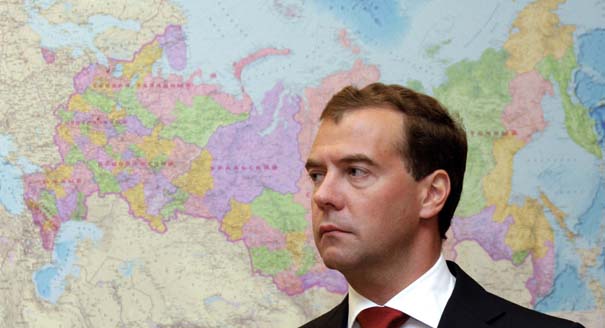Russia’s recovery from the global economic crisis has been slow, constrained by a number of structural problems, both economic and political. That the oil price continues to play an inordinately big role in Russia’s economy is a symbol of these problems. Corruption, which has reached previously unheard-of levels, is a symptom, not the cause. Unless these fundamental factors change, Russia will not be able to start living up to its potential.
Russia’s population exhibits elements of unease, but this is unlikely to lead to unrest. Society, until now squarely focused on the private space, is maturing and beginning to structure itself as groups of interests, which can manifest themselves in joint actions. This “reawakening” does not yet suggest mass opposition to the government’s policies, but botched reforms—coupled with a sense that they are initiated by “thieves and swindlers”—could disrupt the social peace still reigning in Russia.
The start of a new political cycle in 2012 will be dominated by Prime Minister Vladimir Putin, whether he chooses to return to the presidency or not. Putin has vowed to almost double Russia’s per capita GDP within a decade. To do that, he will need both to implement reforms and maintain firm political control. The political field will probably be expanded to include loyal liberals whose job will be to publicly make the case for reforms, carry them out, and possibly be blamed for them later.
Russia’s foreign policy will continue to be guided by a desire to gain access to Western technology and expertise, which argues against confrontation or even serious political disagreement. At the same time, Russia will strive to establish itself as an independent strategic player with membership in many clubs, from the G8 to the BRICS (Brazil, Russia, India, China, and South Africa)—while building its own economic unit with a few post-Soviet states.
Traditionally Western-centric, Russia’s foreign policy is now rediscovering an Asia-Pacific focus. A number of factors are behind this change: the need to develop eastern Russian territories between the Urals and the Pacific; the opportunity to use the rise of China toward that goal; the need to manage China’s new might; and the opportunity to reach out to the advanced economies of Japan and South Korea, to name a few. Russia is not a European country; it is Euro-Pacific.

.jpg)



